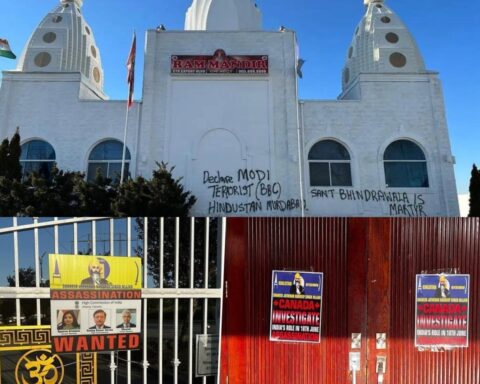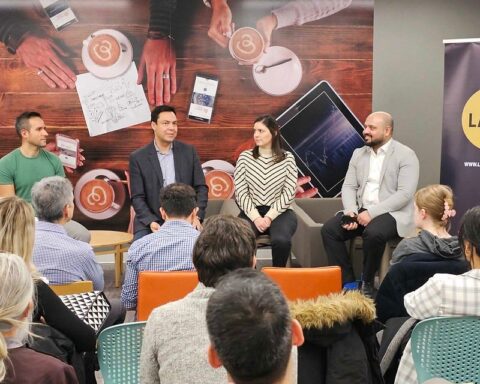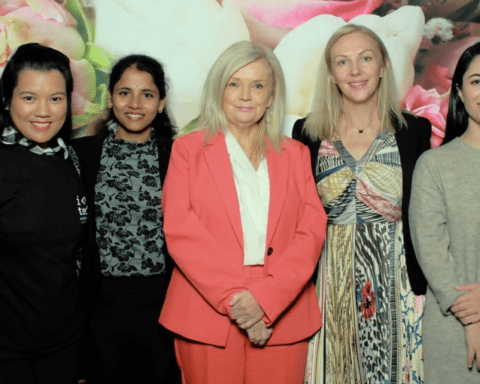Washington DC has the reputation of being one heck of a tough town. With heads of state visiting it frequently, America’s capital is not easily impressed. While Narendra Modi on his maiden visit as Prime Minister made a big splash, the badshahs of the Beltway — the host of think tanks that shape opinion in its power circles — are not as euphoric as some in India are.
Stephen Cohen of the Brookings Institute told me he thought that Modi’s visit had more “sizzle than steak”. He added: “I give his visit a B+. There were no disasters, no big breakthroughs, but the ground for further discussion and action has been prepared.” Cohen does reflect the views of a sizeable section of opinion shapers who had almost written off India before the Modi visit. Many US policy wonks were disillusioned with India’s inability to deliver on its promises. One example: India had yet to fulfil its part of the 2008 Indo-US nuclear deal to enable American companies to set up power reactors.
To Modi’s credit, at the end of his US visit he had turned the situation around and “brought India back in the game,” as Ashley Tellis of Carnegie Endowment for International Peace put it. Tellis thinks the visit had “big achievements but also big incompletes”. To him Modi reached out effectively to the diaspora and his Madison Square Garden rally, which 30 US Congressmen attended, showed that he had built the Indian American card into a major force of political support.
The American business community has begun to believe in the India story again.
Despite these successes, there were many things that remained incomplete. American business is aware that for any successful transaction with India many limitations remain. While Modi is expected to keep his word and speed up the cumbersome process of clearances, US corporates are not confident he would be able to address issues such as land acquisition and infrastructure like power shortages quickly enough. Modi was able to convince another major player, American business, to revise its poor opinion about the new government, particularly after its incremental first budget, and also India’s blocking of the Trade Facilitation Agreement at the WTO recently. Tellis believes Modi’s other major achievement was that he was able to build a personal connect with the US President, best symbolised by the fact that they not only had an extended bilateral meeting but also Barack Obama broke protocol and personally took him around the Martin Luther King Memorial.
Guarded optimism
Many like Michael Krepon of the Stimson Centre believe that Modi has a limited world view. They find it hard to swallow that India kept mum when Russia flexed its muscles against Ukraine and occupied its territory. And that India did nothing beyond expressing support for America’s renewed war on terror against the ISIS despite dangers to its own security. Krepon says, “There is guarded optimism, even skepticism, about the outcome of the Modi visit. There is a wait-and-see attitude as to how much can he translate what all he promised into reality.”
To his credit Modi was able to turn around the relationship from one of despair and frustration to that of optimism and hope. Known to be a problem solver and doer, Modi is unlikely to allow the relationship to drift again and will push for rapid implementation of the summit outcomes. A first sign was that National Security Adviser Ajit Doval stayed back to engage in intensive discussions with his counterpart Susan Rice and Secretary of Defence Chuck Hagel.
“[…] Modi has already demonstrated his ability for decisive action and is expected to bring about the big changes needed to put the relationship back on track.
From an Indian standpoint, a major achievement of the visit was the announcement that India and the US would begin “joint and concerted” efforts to dismantle safe havens for terrorists and criminal networks and disrupt all financial and technical support for them, naming the Lashkar-e-Toiba, Jaish-e-Mohammed, Dawood Ibrahim, Haqqani and Al-Qaida for specific action. In doing so, Modi achieved India’s primary goal of harnessing the US support to tackle Pakistan’s cross-border terror networks as a whole and not selectively.
Turning over a new leaf
The American business community has begun to believe in the India story again. On key American concerns like the nuclear liability issue the joint Indo-US interagency group has been set up to work out a viable solution and speed up the purchase of American nuclear power reactors. On defence, the extension of the framework agreement by 10 years and the proposal to identify technologies that India could co-develop and co-produce with the US will give it the much needed impetus.
Contentious issues like India’s approach to WTO and intellectual property rights remain but at least both sides are talking to understand each other’s point of view and work out a solution. Stung by the skepticism among US circles, an Indian official argued, “If people think of the Indian Prime Minister as one who would bring about incremental change they are on the wrong side of history. Modi has already demonstrated his ability for decisive action and is expected to bring about the big changes needed to put the relationship back on track.” Now comes the hard part of delivering.
Raj Chengappa is the current Editor-in-Chief at The Tribune India and was the former Managing Editor at India Today. He has written and anchored over 150 path-breaking cover stories for India Today on a range of subjects, including foreign affairs, security, politics, defence, and many more.
This post was original published in The Tribune India and has been re-published with permission.




